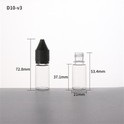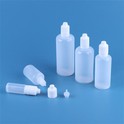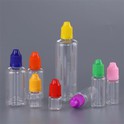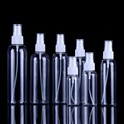In January last year, the city’s largest and only recycling plant capable of turning PET1 bottles into food-grade plastic started operations. Many hailed it as a recycling milestone for Hong Kong. Unfortunately, a mere 16 months later, New Life Plastics suspended its business.
The disappointing development was reported by Ming Pao.
The reason for the closure is a very low plastic bottle return rate – the percentage of used bottles recovered and not sent to landfills. The plant said it was operating only at a 30 per cent capacity. It is able to process 60 tonnes of plastic bottles a day, or around 1,800 tonnes a month. But it received an average of 300 tonnes from January to March. In April, the figure dropped to 30 tonnes as the facility gradually halted its operations early that month.
The recycling plant started operating at EcoPark – a site in Tuen Mun for waste recycling – in January last year. It processed plastic bottles collected at the government’s Green@Community retail recycling points across Hong Kong. The plant was a supplier to other manufacturers that produce recycled polyethylene terephthalate (PET) plastic bottles and related products.
As an advocate of sustainable development, I am disappointed but unsurprised.
The Environmental Protection Department said it was unable to share figures for the returning rate of plastic bottles in Hong Kong. But according to the department’s 2021 report, just 5.7 per cent of all plastics were recovered from municipal solid waste for recycling.
Economies with meaningful recycling schemes have a high returning rate. The rate for the return of plastic bottles in Germany is 98 per cent and 97 per cent in Norway.
At the moment, the public can take their used water bottles to the government’s “reverse vending machines,” where users can receive a HK$0.10 rebate for each container they deposit. But the scheme has not proved attractive, and the lack of progress in encouraging beverage producers to recycle single-use containers, mean our city relies on the goodwill of environmental enthusiasts to collect and recycle plastic bottles.






